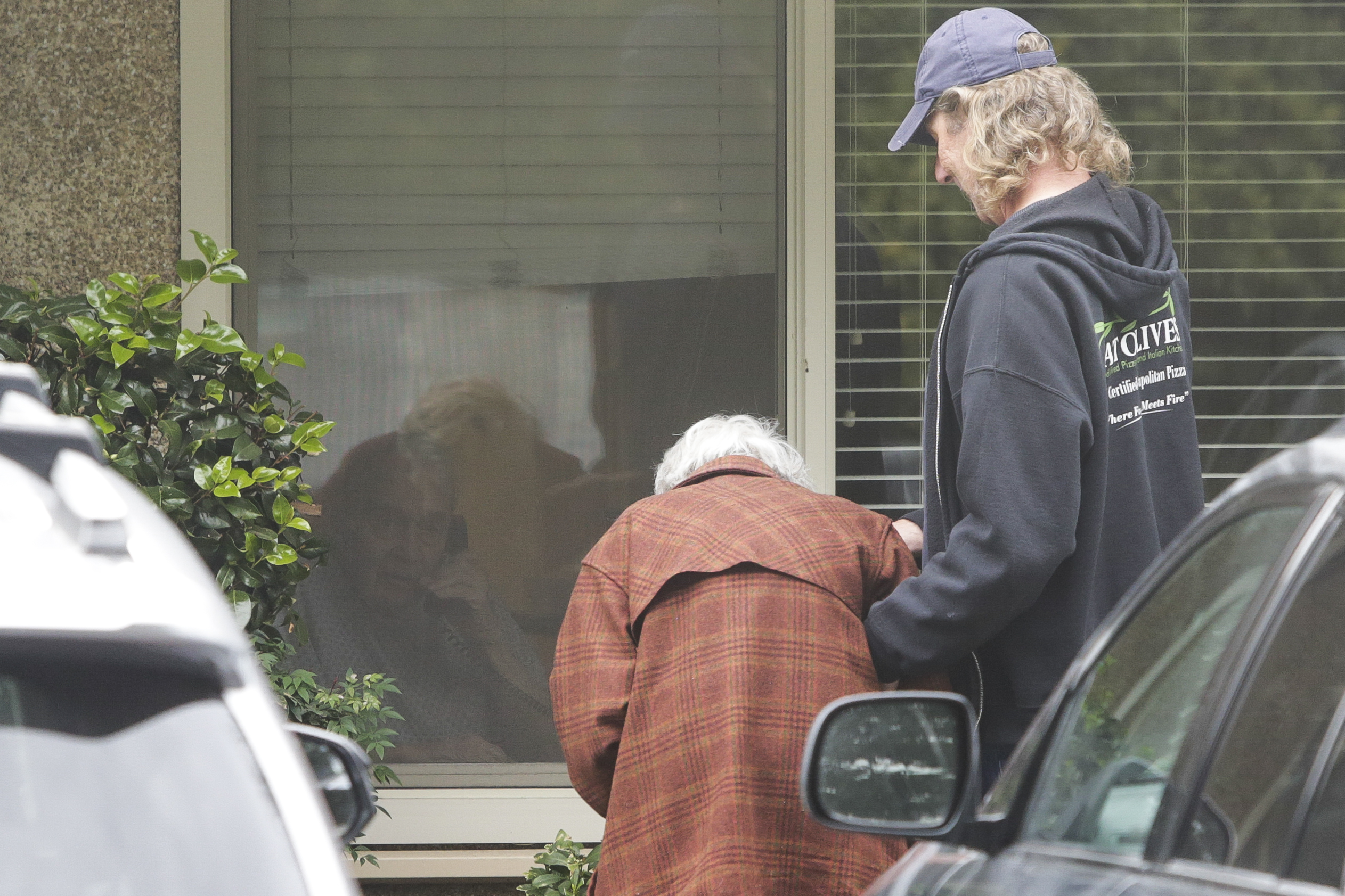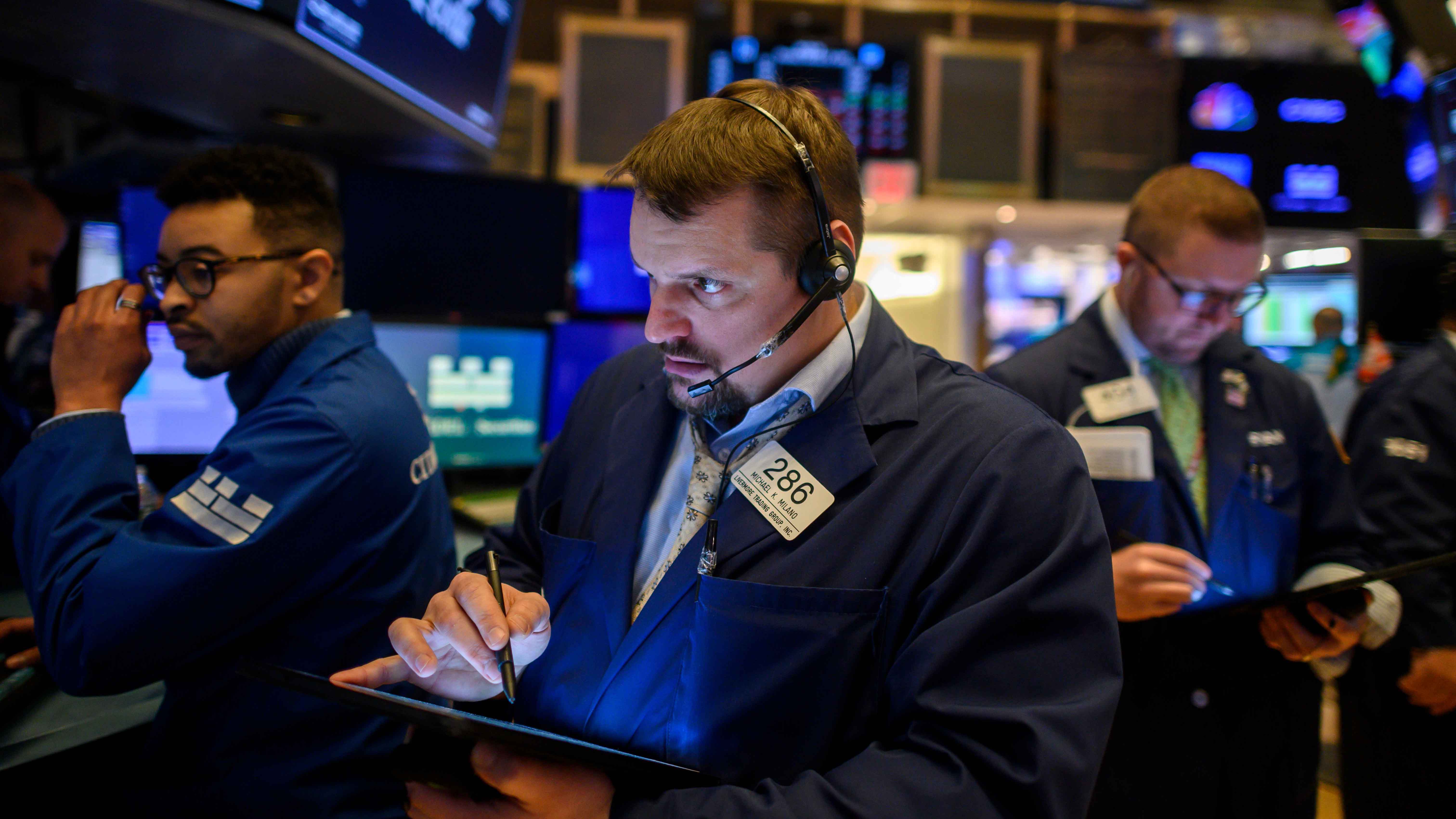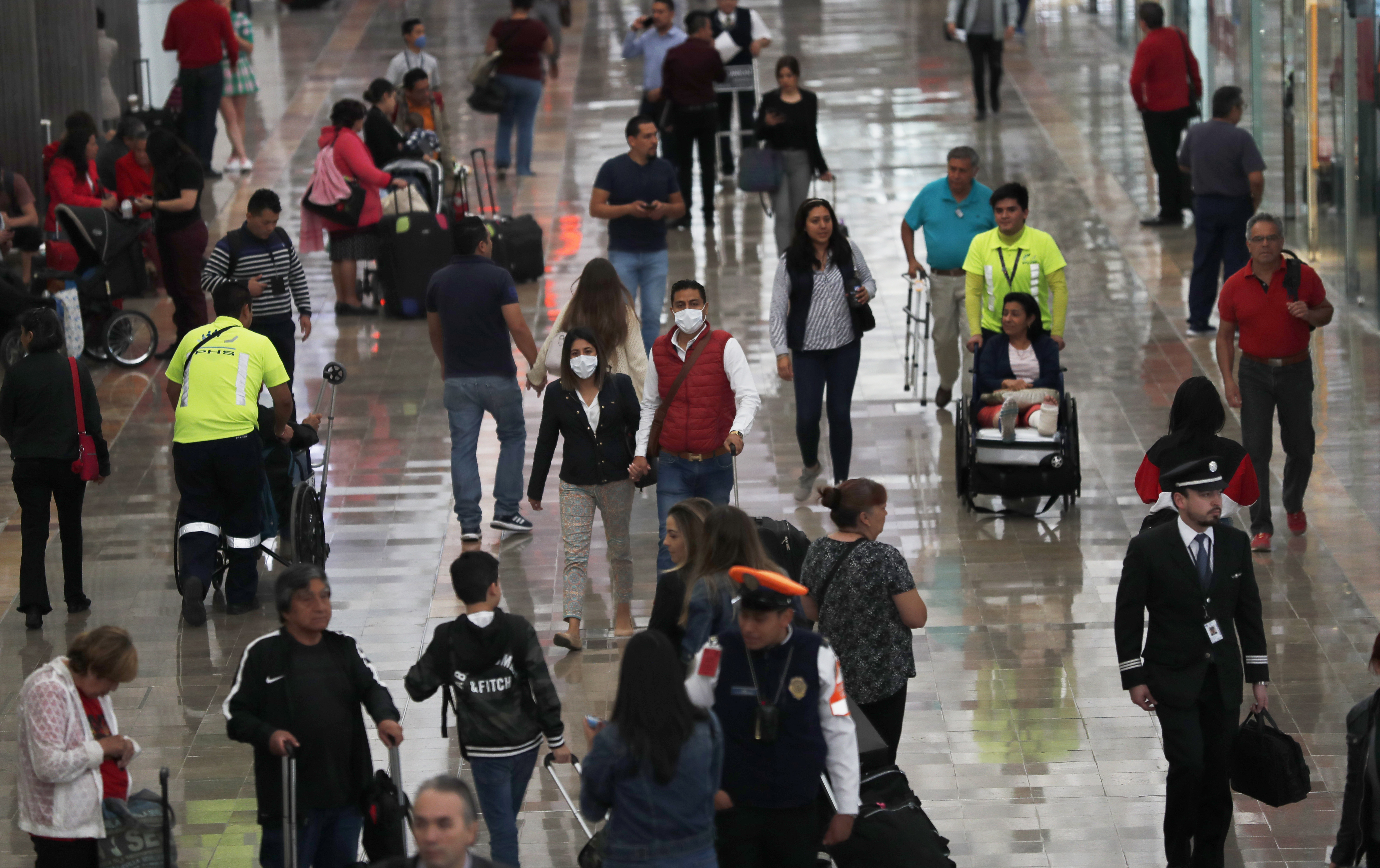Crossing more borders, the new coronavirus hit a milestone Friday, infecting more than 100,000 people worldwide as it wove itself deeper into the daily lives of millions, infecting the powerful, the unprotected poor and vast masses in between.
The virus, which has killed more than 3,400 people, edged into more U.S. states, emerged in at least four new countries and even breached the halls of the Vatican. It forced mosques in Iran and beyond to halt weekly Muslim prayers, blocked pilgrims from Jesus' birthplace in Bethlehem and upended Japan's plans for the Olympic torch parade.
As financial markets dived again, repercussions from the virus also rattled livelihoods in the real economy.
Get top local stories in San Diego delivered to you every morning. >Sign up for NBC San Diego's News Headlines newsletter.
“Who is going to feed their families?” asked Elias al-Arja, head of a hotel owners' union in Bethlehem in the Israeli-occupied West Bank, where tourists have been banned and the storied Church of the Nativity was shuttered.
At the White House, President Donald Trump signed a $8.3 billion bill to fight the coronavirus a day after Italy said it would double its virus fight spending to 7.5 billion euros ($8.5 billion).
In Geneva, the U.N. health agency said it had received applications for 40 possible virus tests, had 20 vaccine candidates in development and reported that numerous clinical trials of experimental drugs for the new coronavirus were underway.
“We're all in this together. We all have a role to play,” said Tedros Adhanom Ghebreyesus, chief of the World Health Organization, urging more global cooperation from the business world and solidarity with the poorest.
Yet even as COVID-19, the disease caused by the virus, reached 90 countries, more than half of those who contracted the virus have now recovered. It's retreating in China, where it first emerged, and in nearby South Korea.
Questions swirled around whether Iran could control its outbreak, as the number of reported infections jumped beyond 4,700 on Friday, with 124 deaths. Iran set up checkpoints to limit travel and had firefighters spray disinfectant on an 18-kilometer (11-mile) stretch of Tehran's most famous avenue.
“It would be great if they did it every day,” grocery store owner Reza Razaienejad said. “It should not be just a one-time thing.”
The 100,000 figure of global infections is largely symbolic, but dwarfs other major outbreaks in recent decades, such as SARS, MERS and Ebola. The virus is still much less widespread than annual flu epidemics, which result in up to 5 million annual severe cases around the world and from 290,000 to 650,000 deaths annually, according to WHO.
But the epidemic's economic impact snowballed, with world stocks and the price of oil dropping sharply again Friday.
The travel decline and a broader economic downturn linked to the outbreak threatened to hit already-struggling communities for months. In response to plummeting demand, German airline Lufthansa announced a reduction of its capacity in coming weeks to as much as 50% of pre-coronavirus outbreak levels. Slovakia banned all flights to and from Italy.
The head of the U.N.’s food agency, the World Food Program, warned of potential for “absolute devastation” as the outbreak’s effects ripple through Africa and the Middle East. India scrambled to stave off an epidemic that could overwhelm its under-funded, under-staffed health care system, which lacks enough labs or hospitals for its 1.3 billion people.
“We’re seeing more countries affected with lower incomes, with weaker health systems and that's more concerning,” WHO chief Ghebreyesus said.
Coronavirus Outbreak Coverage
White collar workers can log onto laptops from home, but health care workers, waiters, delivery workers, cashiers, drivers, museum attendants and others can't. And sick leave policies or health insurance coverage are inconsistent around the world, putting millions of workers' earnings at risk. In the U.S. the AFL-CIO labor federation urged the government to issue emergency regulations outlining employers' responsibilities to protect workers from infectious diseases.
The fear and the crackdowns that swept through China are now shifting westward, as workers in Europe and the U.S. stay home, authorities vigorously sanitize public places and consumers flock to stores for household staples.
Nation after nation put some travel restrictions into place, blocking visitors from hard-hit areas like China, South Korea, Italy and Iran. The United Nations’ top climate change official said her agency won’t hold any physical meetings at its headquarters in Germany or elsewhere until the end of April.
French Health Minister Olivier Veran said children would be banned from visiting patients in hospitals and other health facilities across the country and that patients would be limited to one adult visit at a time. Spanish officials announced a month-long closure of 200 centers in and around Madrid where the elderly go for daytime care and activities.
More Coronavirus Coverage
“The Western world is now following some of China’s playbook,” Chris Beauchamp, a market analyst at the financial firm IG, said of the reaction to flu-like illness that for most people causes mild or moderate symptoms such as fever and cough but can hit elderly or sick people much harder.
Off California's coast, the spectacle of a Grand Princess cruise ship ordered to stay at sea with passengers confined to their cabins as 45 people were tested for the virus was eerily similar to a scene on the other side of the globe in which about 700 of the 3,700 aboard the Diamond Princess cruise ship were infected during a quarantine.
Thailand on Friday blocked a separate cruise ship from docking, worried because it carried dozens of passengers from Italy, which with 148 virus deaths is the center of Europe's epidemic.
In the U.S. the number of cases surpassed 230, scattered across 18 states. The University of Washington announced Friday it would stop holding classes and teach students online, a decision affecting some 57,000 students. The state has at least 70 confirmed COVID-19 cases, most in the Seattle area and the highest U.S. state death toll at 13.
China reported 143 new cases Friday and South Korea had 505 more cases, down from earlier daily tallies. But the numbers kept growing in Europe and the death toll in hard hit Italy reached 197. Serbia threatened to deploy the army to keep the virus at bay, and Hungary used virus fears to tighten its doors against migrants.
In Switzlerand, officials reported 210 new virus cases on Friday, up from 90 a day earlier, and the military was being readied to provide support services at hospitals.
“This wave will come, it will rise, but it will be over at some point,” said Daniel Koch, head of the department for communicable diseases at the country's Federal Office of Health.

The Netherlands reported its first virus death Friday while Serbia, Slovakia, Peru and Cameroon announced their first infections. Even Vatican City was hit, with the tiny city-state confirming its first case Friday. The Vatican has insisted that 83-year-old Pope Francis, who has been sick, only has a cold.
WHO officials warned against having “false hopes” that the virus could fade away when warmer summer temperatures come to northern countries.
"Every day we slow down the epidemic is another day governments can prepare their health workers to detect, test, treat and care for patients,” the WHO chief told reporters. “Every day we slow down the epidemic is another day closer to having vaccines and therapeutics, which can, in turn, prevent infections and save lives.”
Sedensky reported from Bangkok. Associated Press writers contributing to this report were Alan Clendenning in Phoenix; Jamey Keaten in Geneva; Kim Tong-Hyung and Hyung-jin Kim in Seoul, South Korea; Aya Batrawy and Jon Gambrell in Dubai, United Arab Emirates; Nicole Winfield in Rome; Colleen Barry in Milan, Italy; Dusan Stojanovic in Belgrade; Sylvie Corbet in Paris; Gene Johnson in Seattle; Olga Rodriguez in San Francisco; and Mohammed Daraghmeh in Bethlehem, West Bank.





